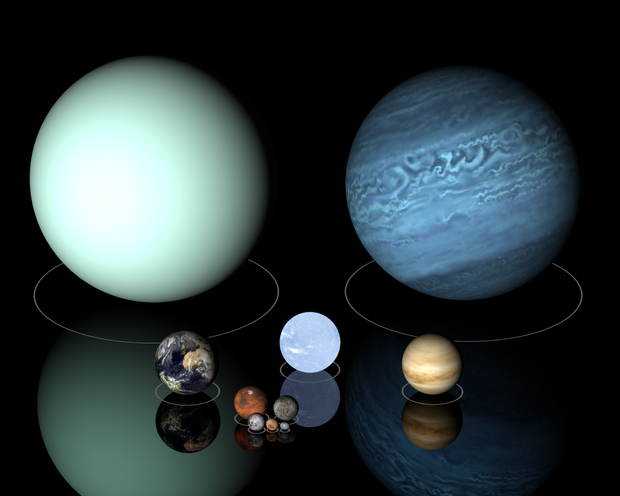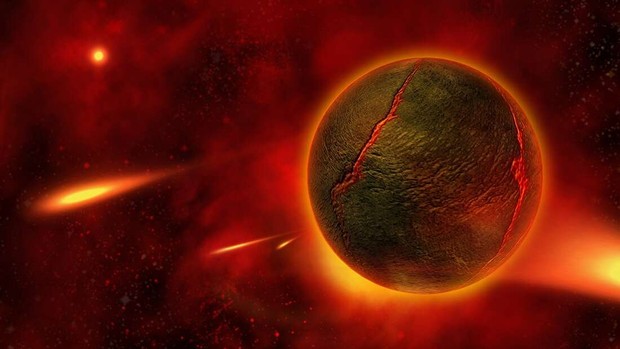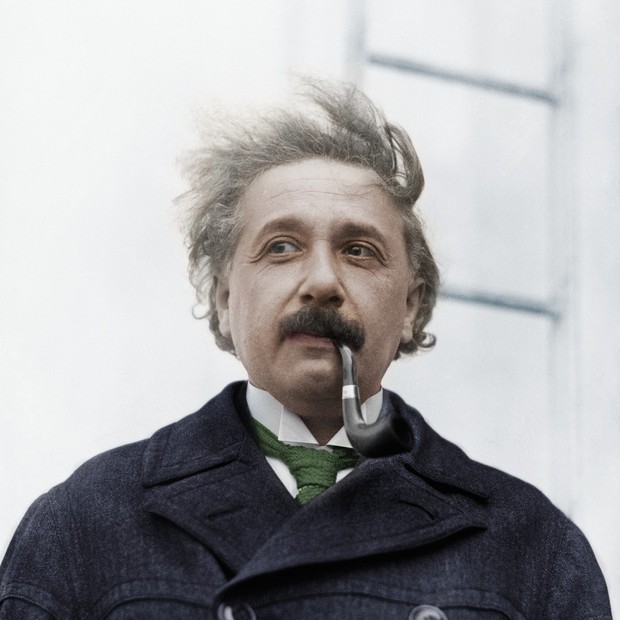The genius Albert Einstein once destroyed an entire planet is famous in the astronomical community, thanks to the theory of relativity – also his greatest work.
In 1846, the mathematician and astronomer Urbain Le Verrier was trying to locate a planet that had never been discovered by man. The cause is from Uranus (Uranus) – the 7th planet in the solar system – has a rather odd orbit, not as predicted by Newton’s theory of gravity.
Uranus fluctuations are quite small, but such deviations are noticeable. In July 1846, Le Verrier suggested that this deviation could be due to another neighboring planet of Uranus, and made predictions about the orbit of this mysterious object.
But as a mathematician, Le Verrier was not very interested in doing this research on a periscope. This work therefore went to the German astronomer Johann Gottfried Galle. On September 2, 1846, Galle aimed for Le Verrier’s planned location and discovered a real other planet. It’s Neptune – Neptune.
But calm down, Neptune is not the main character here!
After discovering a planet by observing the orbit of another, Le Verrier was invited to observe another planet, Venus – Mercury. Venus is a planet located very close to the Sun, so in many ways it is a really difficult planet to observe. Le Verrier therefore played a role in determining the orbit of Venus using mathematical formulas and Newton’s laws of physics.
But strangely, he couldn’t do it. Despite many attempts, the orbit of Venus is still very chaotic and quite meaningless compared to theory. Because according to Newton’s law, the planets will move in an ellipse around the Sun, but Venus is somewhat … swaying. This suggests that he may be under the influence of the gravity of another celestial body.
Like Uranus, Le Verrier believes that another planet exists next to Venus, influencing its trajectory. He named it Vulcan – after a planet from the Star Trek series (Journey to the Stars).
Very quickly, astronomers began to observe this planet and got results. The first report was published by Edmond Modeste on March 26, 1859. Nine months later, he mentioned this report to Le Verrier. Based on Modeste’s observations, the mathematician began calculating Vulcan’s orbits and believes they are approaching about three to four times a year.
But with the exception of Modeste’s report, several other reports also mentioned Vulcan sightings which did not provide much evidence. Le Verrier also relied on several other observations, not all of which made it possible to locate the planet.
Rumors about Vulcan continued like this. In 1879, a report suggested that Vulcan could pass the Sun based on the calculations of astronomer Theodor von Oppolzer, but this did not appear. Because of this report, every eclipse on Earth was observed very closely, but Vulcan did not appear.
Genius Einstein – The “terminator” of Vulcan
Reading this far, do you find it strange that you have never heard of Vulcan during school hours? The reason is that Vulcan doesn’t really exist.
In fact, the Vulcan hypothesis remained suspended in the scientific community for the next 70 years, only to be destroyed by the genius Albert Einstein with his most famous work: The Theory of Relativity.
Einstein’s theory allowed astronomers to predict the orbit of Venus without the need for variables from other planets. This theory considers gravity to be the result of the distortion of space-time, when objects closer to larger objects are more affected. That is, the “wobbling” of Venus is simply due to the fact that it is so close to the Sun, while the more distant planets will be less affected by this curve.
Einstein’s theory thus solved not only the orbits of Venus, but also the Earth, Mars, Jupiter…





